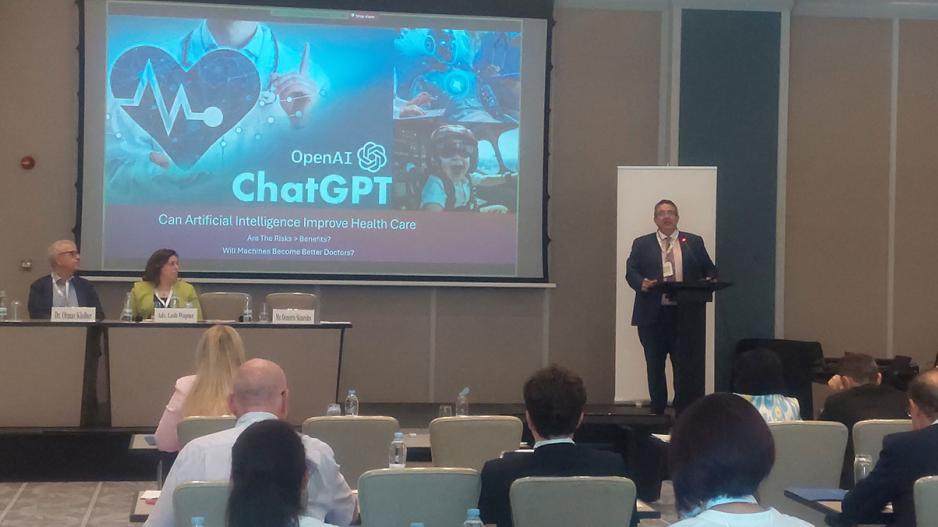AI to Revolutionize Personalized Healthcare, Says Cyprus Chief Scientist
At EFMA, Demetris Skourides Highlights the Role of AI in Augmenting Medical Professionals and Reducing Costs
Artificial Intelligence has the potential to revolutionize healthcare by enabling personalized care at a lower cost, according to Chief Scientist for Research, Innovation, and Technology of the Republic of Cyprus, Demetris Skourides.
Speaking at the 38th Annual Meeting of the European Forum for Medical Advancement (EFMA) in Limassol, Skourides emphasized that AI and robotics can augment medical professionals, providing what he referred to as "Human Centric Augmentation"—essentially giving healthcare workers "AI superpowers."
Skourides, attending in his capacity as Technology Officer and AI Strategist, provided insights into the impact of AI on the medical profession. This year’s EFMA event, themed "Threats to the Medical Profession," brought together experts, professionals, and stakeholders from the global medical community to discuss pressing challenges and innovative solutions, according to a relevant announcement.
During his keynote, Skourides addressed misconceptions about generative AI models like ChatGPT. While such AI can assist with many healthcare tasks, particularly administrative ones, Skourides clarified that a more specialized large language model trained with medical data is necessary to truly unlock the potential of AI in healthcare.
He offered examples of how AI is already being used in surgery, diagnosis, prevention, and treatment, emphasizing that AI can enable faster, more informed decision-making, ultimately reducing risks for patients and making healthcare more affordable.

Skourides also discussed the progress Cyprus has made in healthcare research. Since 2016, the government has provided €41 million in funding for healthcare, including €13.9 million for research, €7.5 million for knowledge transfer, €9.5 million for innovation, €5.4 million for research infrastructures, and €4.8 million for internationalization.
He analyzed how generative AI can help reduce administrative and operational costs in healthcare, providing value to both medical professionals and patients. Additionally, he shared examples of customer-centric healthcare solutions, which he believes can significantly improve quality of life.
In a panel discussion chaired by Dr. Otmar Kloiber, Secretary General of the World Medical Association, Skourides, along with other prominent figures including Adv. Leah Wapner, Secretary General of the European Forum of Medical Associations, Hadas Bitran, Head of Health & Life Sciences at Microsoft Israel R&D Centre, and Dr. Oksana Souter, CEO of Swiss Organic Solutions, addressed questions on AI ethics and traceability.
Skourides reassured the audience that the EU AI framework ensures that AI implementations in healthcare should not be perceived as a threat to medical professionals. He described AI as a "co-pilot" that can reduce operational and informational workloads, mitigate life-threatening risks, improve decision-making, and allow doctors to focus more on patient care.






